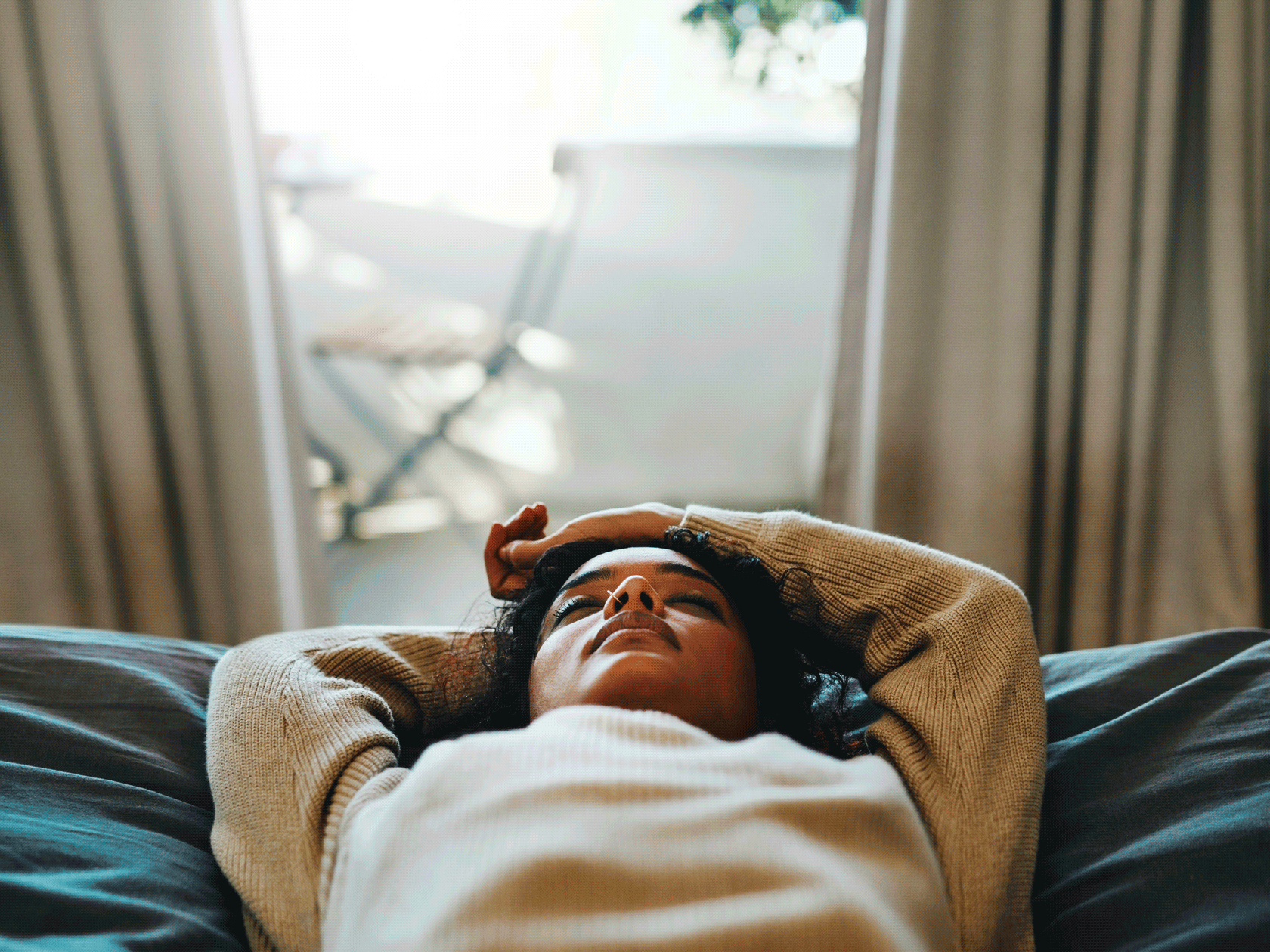How to work out if you should set an early alarm for the gym or have a lie in.
We don’t have to tell you how importanta good night’s sleep is for your mood, digestion, stress levels and workout routine. And you probably also know that exercise has huge benefits for your mental health and can make you feel more energised. So when your alarm goes off at 6AM, how do you choose between rolling out of bed or hitting snooze?
Knowing what your body needs most can be challenging, recognises sleep expert Dr Nerina Ramlakhan. “But the more we start to listen to our body, the more we will be able to discern between being tired because I need to eat something or I need to drink some more water or I need to move or I actually need to sleep,” she explains.
You may also like
Exercise and sleep: how working out can help you sleep better, according to a doctor
“I think we need to start thinking more expansively about what nourishes our energy. It isn’t a straightforward answer as there are lots of things that can make you feel tired,” she adds. “I personally know that sleep is the issue when my mood is affected, I get grumpy and I start to notice tiredness around my eyes and head fogginess. But sometimes I can get tiredness caused by low blood sugar, or simply needing to get out and move more or from being on Zoom and Teams too much.”
Understanding your sleep pattern is the key to figuring out what your body really needs, she says. “The sleep that you get from 5am onwards, from an energy perspective, is of limited value. Certainly, a lie-in is lovely at the weekends, but otherwise, you’re probably better off getting up early and getting in some exercise,” Dr Ramlakhan explains. “There’s an intelligence built into the design of our sleep – we sleep in 90-minute cycles and each cycle seems to repair the body in a different way.”

The benefits of a morning workout
According to Dr Ramlakhan, Eastern studies show that the sleep we get pre-midnight and the sleep we get between 2-4 am are the most crucial hours for restoration. Outside of this, power naps are where it’s at for energy-boosting sleep. “In countries like Japan and China, which are renowned for their productivity, people nap at work in the afternoon. The science shows, from a chronobiology perspective, a 20-minute nap can significantly improve your mental and cognitive performance.”
So, does that mean we should all be jumping out of bed with the sunrise for a morning marathon? New research published in the British Journal of Sports Medicine found that middle-aged people who who exercised a lot could counteract the negative health impact of a bad night’s sleep with a workout. Plus, regular exercise has been shown to increase energy by 20% while decreasing fatigue by as much as 65%, according to a study from the journal Psychotherapy and Psychosomatics – mainly due to improvements in how the body carries oxygen and nutrients throughout the body.
But these are more about exercise over time, rather than pushing yourself when you’re already fatigued. “We need to get away from this formal notion of ‘exercise’ being running for an hour or go to the gym and using every piece of equipment. Instead, focus on walking, moving around and shaking up your energy. You will notice that focusing on moving every day helps you start to feel better and sleep better,” says Dr Ramlakhan.
You may also like
Our energy levels are lower than ever right now – here’s how to recharge
How sleep impacts your exercise
It is also crucial to remember that we need time and sleep in order to recover from the tougher workouts that we do. “If you’re starting to feel run down, are struggling to recover from exercise, have joint pain or cold sores, that could be a sign that your immune system is struggling, and I’d say maybe you shouldn’t be exercising,” reminds Dr Ramlakhan.
But most importantly, we need to learn to tune in to ourselves. “I can’t help but relate this to the fact that this has been such a challenging year for us on so many levels. I think the one thing that we need to do is to start becoming more self-aware because there are so many people who went into the pandemic burnt out not realising it,” Dr Ramlakhan says. So, while an early wake-up call and a nap might work for long-term energy levels, there’s also no shame in taking time to catch up on sleep after a restless weekend.
Follow @StrongWomenUK on Instagram for the latest workouts, delicious recipes and motivation from your favourite fitness experts.
Images: Unsplash/Getty
Source: Read Full Article
